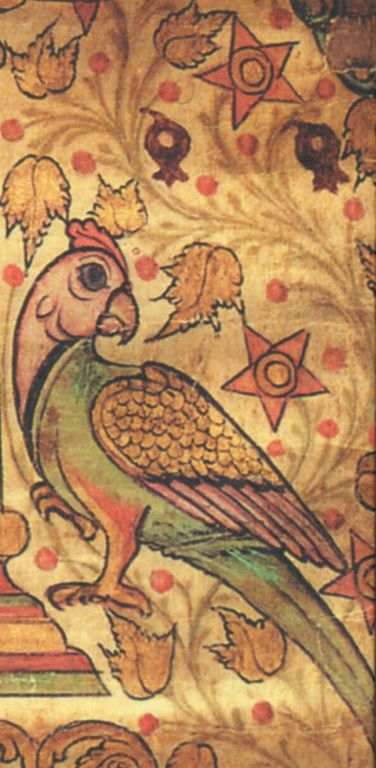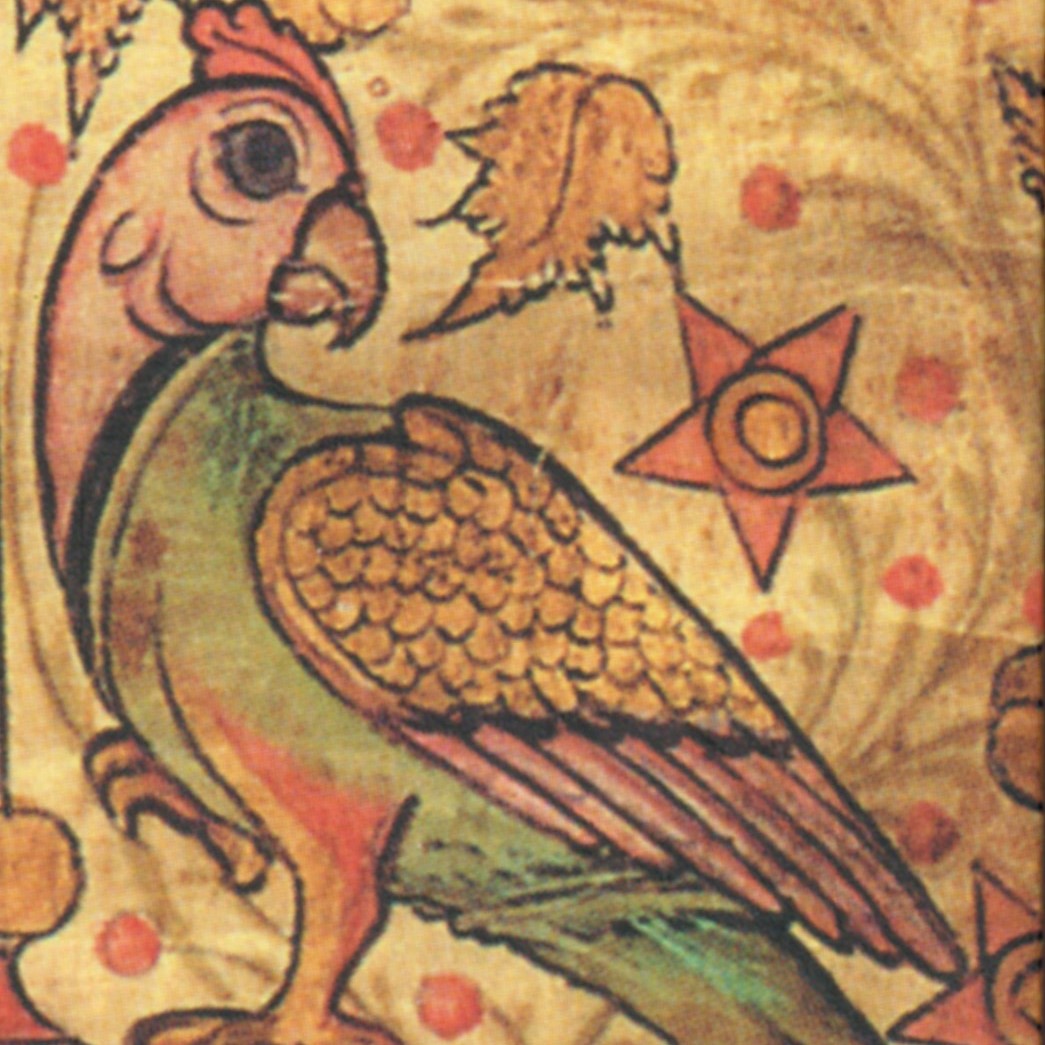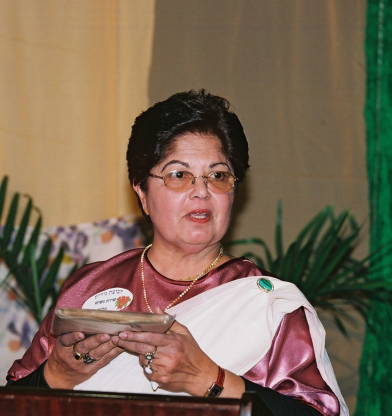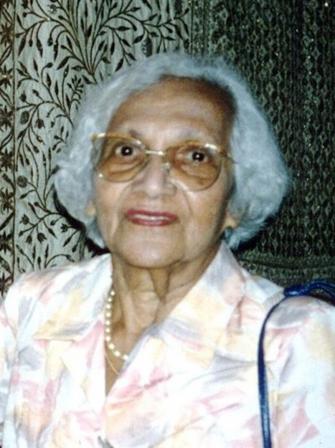1981
43. The Song of Mother Sarah
43. Rahel Nehemiah, Toba Sofer and others. Recorded by Avigdor Herzog, Moshav Taoz, December 23, 1981. CD Track 18; III-14.
Taṃbirān mŏyiṃbu tŏņayāyirikkeņaṃ
Tanda tŏņayālě irikkunna nerattu
1. Tamburan, O Lord God, be the first help for us.
At the time when he was living, with the help of Tamburan,2. To our Abraham Abinu a divine decree was sent:
“Abraham, this you must do. You must remove your bitterness.”3. “What is this that You are saying? What is this—my bitterness?”
“Carefully regard your body; you must examine carefully.”4. Carefully then he looked; he examined carefully.
On his body then he did it; he fulfilled the decree.5. Mother Sarah then received a decree sent from God:
“Sarah, I have news for you! Sarah, you will bear a child.”6. “What is this that You are saying?” Sara-Umma laughed aloud.
“My man’s one hundred; I am ninety. What can happen between us?”7. I ask you, how can I be pregnant? However can this come to be?”
When Sara-Umma closed the door, the doorpost sprouted and it bloomed.8. Joyfully she went and bathed, bathed in righteous purity.
She conceived and months went by, until ten months were complete.
Sāṟā ummaṭa kālattu novuṃ viḷiyuņḍu
Sāṟā ummaṭa kālattu marattottimāruņḍ
9. In the time of Sara-Umma, there was birth with pain and screaming.
In the time of Sara-Umma—there were midwives at that time.10. Screaming wildly, she gave birth; Mother Sarah then gave birth.
A boy was born to Sara-Umma, born as Sara-Umma’s son.11. And the child was given wisdom; You gave wisdom to the boy.
The commandment was performed; on the eighth day it was done.12. In accordance with the mitzvah, the commandment was performed.
Itzhak Abinu was the name that was given to the boy.13. Later on this was what happened. After a short time had passed,
A divine decree was given to our father Abraham:14. “Abraham, you are commanded—you must give your first-born son.”
“All the blessings I received, all came from You,” he replied.15. Without pausing, without seeing, they went to do the puja[1] rite.
To a high place they went up; up they went and there they stood.16. They went up to carry out all the proper holy deeds.
“O my father, I will sin if I kick you with my foot.17. O my father, there’s a chance I might strike you with my hand.”
So, his limbs were tied together—all four limbs together bound.18. The strong knife was sharpened then; then he made it very sharp.
Who then came to Sara-Umma? Satan[2] the greatest enemy!19. “Sara-Umma, listen to me. Your son is being slaughtered now!
The son to whom you gave birth, at one hundred years of age,20. The one of great intelligence, with a mind so sharp and pure!”
Hearing, Sara-Umma fell—fell down from the upstairs room.21. From the injury she died; from falling, Mother Sarah died.
“Do you see something with your eyes? Tell me please, what do you see?”22. “Something I see looks like lightning and sounds like a violin.
Something I hear sounds like goats—goats descending from the sky.”23. When they went to catch a goat, then the goat began to cry:
“So is this how it must be? At this moment must I die?”24. “You need not be afraid to die. Once each year your voice will sound!”
With the slaughter of the goat, the puja offering was done.25. Blessings, blessings, always blessings. So may Tamburan be blessed.
May Lord God, the only One, reign forever and be blessed.
The Song of Mother Sarah is found in women’s notebooks from Kadavumbhagam-Kochi, Ernakulam, and Chendamangalam, with enough significant differences that Zacharia textualized two variants (2005, 56–57, 58–61). The one translated here is from Kadavumbhagam-Kochi, as performed in 1981 by a group of women from that community living in Moshav Taoz, Israel.[3]
This musical narrative of events from biblical stories about the Matriarch Sarah’s old age (Genesis 18:21–23) is presented as a series of dramatic scenes, enriched by the creative incorporation and transformation of stories from midrash. The colloquial style brings to life conversations between Abraham and God, Sarah and God, Abraham and Isaac, Sarah and Satan, and finally Abraham and the sacrificial ram or goat. In stanzas 16 and 17, Isaac’s request that Abraham bind his hands and feet, for fear that he will push against his father (Ginzberg 1968, 1:280) is phrased in very Indian terms when he cries out, “O my father, I will sin if I kick you with my foot,” as it is a great insult in India to touch someone with the foot, and a father is, of course, worthy of greatest respect. Likewise, the use of the Malayalam word “puja” in reference to the potential sacrifice of Isaac in the first part of the song and then the actual sacrifice of the goat at the end carries echoes of Hindu puja rituals—offerings to the deity (usually symbolic in the form of water, food, or flowers, but in some places including animal sacrifice)—as well as a reference to the practice of animal sacrifice in biblical times.
The Jewish women’s perspective is particularly evident in this song. Their intimate concern for Sarah’s ritual bathing before conceiving Isaac (stanza 8) is probably an allusion to the midrash that she began to menstruate again as soon as she heard that she would become pregnant (Babylonian Talmud Bava Metzi‘a 87a) and thus she had to take a ritual bath before sexual intercourse. Likewise, of personal concern to the women singers would have been the intensity of Sarah’s labor pains—contradictory to the midrash stating that the pregnancy and labor were without pain (Tanḥuma Buber, Vayera 36). The concern about whether she had the help of a midwife may relate to the known presence of Jewish midwives in Kerala to help with Jewish births, at least in the early part of the twentieth century. Though the reference in stanza 7 to a blossoming doorpost seems to be unique to Kerala, it may have been inspired by a midrash comparing Sarah’s pregnancy to the blossoming of a dry tree (Tanḥuma, Vayera’ 15)—or perhaps by biblical and Talmudic references to the blossoming of Aaron’s rod (Numbers 17:23).[4]
The explanation of Sarah’s death as a result of Satan’s telling her that Isaac was sacrificed (stanzas 18–21) is found in midrash, with several different versions of when and how this occurred (Ginzberg 1968, 1:286; 5:254–55). In this song variant, she reacts by tragically falling to her death from an upstairs room, perhaps an echo of the midrash that Isaac asked Abraham not to inform her of his death while she was standing near a pit or on a roof, “lest she cast herself down and die” (Tanḥuma, Vayera’ 23:4). In a dramatic change of scene, the song interrupts the story of the binding of Isaac by inserting the encounter between Sarah and Satan, partially echoing a midrash that portrays the two events as simultaneous (Ginzberg 1968, 1:286). In another variant of the Malayalam song, Satan approaches Sarah after the events on the mountain.
A further transformation of midrash occurs here in the story about the appearance and fate of the goat. The other Malayalam variant refers to the story of Abraham taking both of his sons, Ishmael and Isaac, on the journey to the mountain. When he tested them by asking what they saw ahead of them, Ishmael saw only the mountain, but Isaac saw lights and heard music and the sound of the shofar (Ginzberg 1968, 1:278). In stanza 21 of this song variant, Isaac has already been bound for the sacrifice when he sees lightning and hears music.
At this point in the song, Isaac also hears the sound of goats descending from the sky—dramatically introducing the arrival of the goat who is to be sacrificed in his place, and whose horn will be used for the shofar that is blown every year on Yom Kippur (Ginzberg 1968, 1:285). See also song 60 (“Hanukkah Song”), stanza 4 for reference to the horn of that goat, and “Little Sinai Mountain” (song 50), stanza 3 for reference to the same musical instruments.
The 1981 audio and video recording of this song—which was part of a kalippattu dance performance by women in Moshav Taoz—demonstrates a particularly complex interaction of rhythmic clapping, foot stamping, and singing (Johnson 2016). Using three melodies, the performers began singing slowly, then gradually added clapping and dance steps, escalating the tempo for the final section of the song.
Here musical transcription 1 is based on the melody for the first few stanzas, and its rhythm continues through stanza eight. Musical transcription 2 begins with stanza nine and continues through to the end of the song.
_____________________________
[1] Puja is a Hindu ritual offering to a deity.
[2] “Satan” is the implied meaning, based on the midrash described below.
[3] The second variant, found in notebooks from Ernakulam and Chendamangalam, is twice as long. It includes the story of how Rebecca became the bride of Isaac, and it differs in its presentation of several stories from midrash. See Gamliel’s discussion (Zacharia and Gamliel 2005, 158–162, Hebrew) for a comparative analysis of the two variants.
[4] My thanks to Dr. Tamar Kadari for the Tanḥuma references, and to Sara Lisniansky for the suggestion about Aaron’s rod.







